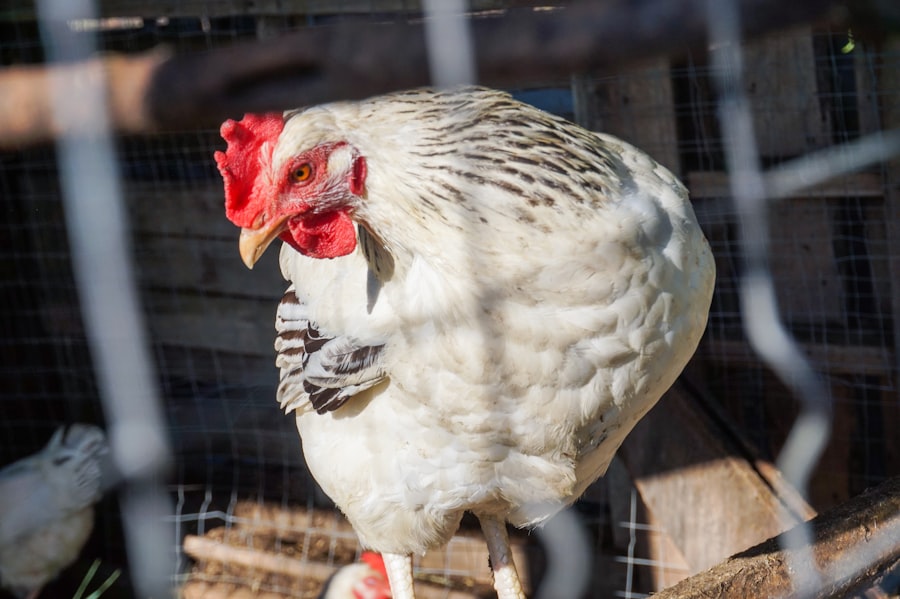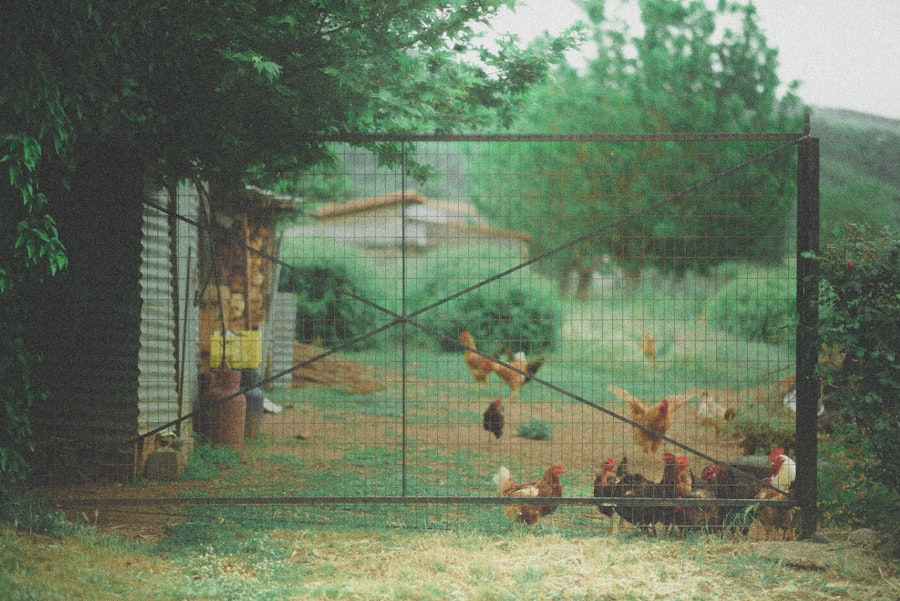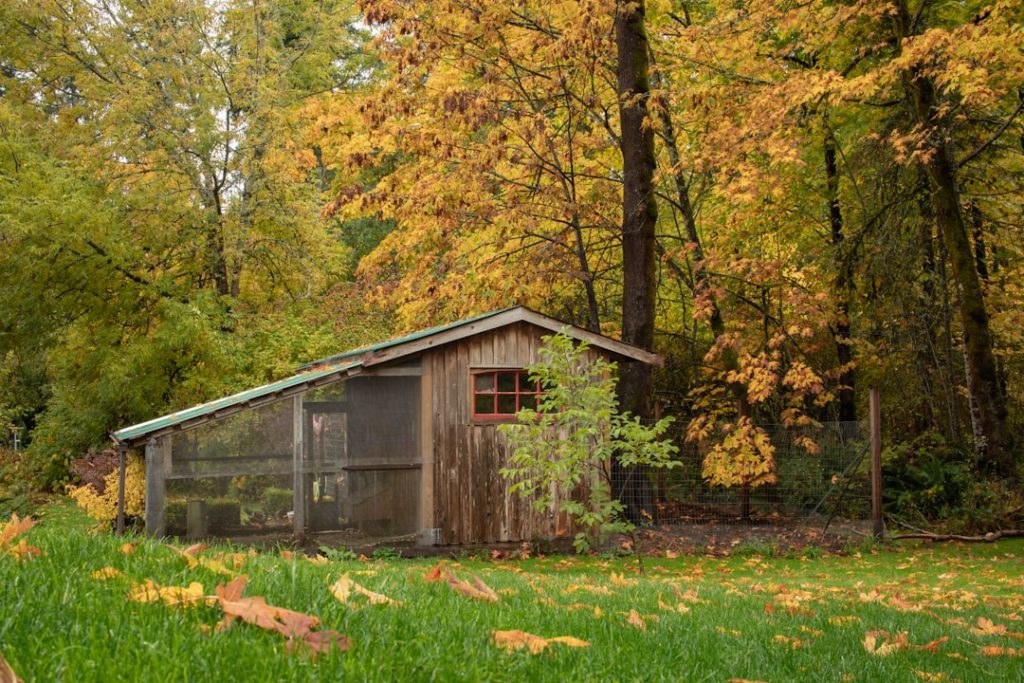Keeping chickens in a housing association offers numerous advantages for the community. One primary benefit is the provision of a sustainable source of fresh eggs, reducing reliance on store-bought products and potentially lowering costs for residents. This practice also promotes self-sufficiency within the community.
Chickens can contribute to waste reduction by consuming kitchen scraps and leftovers, aligning with environmentally conscious living. The presence of chickens can positively impact mental health. Research has shown that caring for animals can help reduce stress and anxiety, while providing a sense of purpose and fulfillment for residents.
Tending to chickens, collecting eggs, and observing their behavior can be both therapeutic and educational for adults and children alike. Additionally, chickens serve as an excellent educational resource, teaching children about responsibility, animal care, and sustainable living practices.
Table of Contents
- 1 Guidelines and Regulations for Keeping Chickens in a Housing Association
- 2 The Role of Chickens in Sustainable Living in a Housing Association
- 3 How to Introduce Chickens to a Housing Association Community
- 4 The Responsibilities of Residents in Caring for Chickens in a Housing Association
- 5 Potential Challenges and Solutions in Keeping Chickens in a Housing Association
- 6 The Impact of Chickens on Community Engagement and Well-being in a Housing Association
- 7 FAQs
- 7.1 What is a housing association?
- 7.2 Can a housing association keep chickens?
- 7.3 What are the benefits of keeping chickens in a housing association?
- 7.4 What are the potential challenges of keeping chickens in a housing association?
- 7.5 How can residents address concerns about keeping chickens in a housing association?
Key Takeaways
- Keeping chickens in a housing association can provide fresh eggs, natural pest control, and a sense of connection to nature for residents.
- Guidelines and regulations for keeping chickens in a housing association typically include restrictions on the number of chickens, coop placement, and noise control.
- Chickens play a role in sustainable living in a housing association by providing organic waste management, fertilizer for gardens, and a local source of food.
- Introducing chickens to a housing association community involves educating residents, obtaining approval from the association, and ensuring proper care and maintenance of the chickens.
- Residents in a housing association have responsibilities in caring for chickens, including feeding, cleaning, and ensuring the chickens’ well-being.
- Potential challenges in keeping chickens in a housing association include noise complaints, odor control, and predator protection, which can be addressed through proper coop design and communication with neighbors.
- Chickens can have a positive impact on community engagement and well-being in a housing association by providing a shared interest, educational opportunities, and a sense of community pride.
Guidelines and Regulations for Keeping Chickens in a Housing Association
Understanding Housing Association Guidelines
Some common guidelines for keeping chickens in a housing association may include restrictions on the number of chickens allowed per household, requirements for coop size and design, and rules regarding noise and odor control. It is vital to understand these guidelines to ensure a harmonious coexistence with your neighbors and the housing association.
Ensuring Chicken Welfare
In addition to complying with housing association guidelines, it is crucial to consider the welfare of the chickens. Residents must ensure that their chickens are provided with adequate space, shelter, and access to food and water. This not only benefits the chickens but also contributes to a positive and healthy living environment for everyone in the community.
Benefits of Responsible Chicken Keeping
By following the guidelines and regulations, residents can ensure that their chicken-keeping endeavors are in compliance with the rules of the housing association and contribute positively to the community. Responsible chicken keeping can foster a sense of community and promote a healthy and sustainable lifestyle.
The Role of Chickens in Sustainable Living in a Housing Association

Chickens play a significant role in promoting sustainable living practices within a housing association. By keeping chickens, residents can reduce their environmental footprint by producing their own eggs locally, thereby decreasing the need for commercially produced eggs that often involve long transportation distances and high carbon emissions. Additionally, chickens can help to minimize food waste by consuming kitchen scraps and leftovers, turning them into valuable nutrients through their manure.
This not only reduces the amount of waste sent to landfills but also contributes to the creation of natural fertilizers for community gardens or individual households. Furthermore, the presence of chickens can encourage residents to engage in other sustainable activities such as composting, gardening, and reducing reliance on processed foods. The act of caring for chickens can also foster a deeper connection to nature and an appreciation for the resources that sustain us.
By integrating chickens into the fabric of a housing association, residents can work together to create a more sustainable and environmentally conscious community.
How to Introduce Chickens to a Housing Association Community
Introducing chickens to a housing association community requires careful planning and consideration to ensure a smooth transition and positive reception from residents. It is important to begin by communicating with the association’s board or management to gain approval and support for the introduction of chickens. This may involve presenting a well-thought-out proposal that addresses concerns such as noise, odor, and potential impact on property values.
Once approval has been obtained, it is essential to engage with the community and educate residents about the benefits of keeping chickens, as well as any guidelines or regulations that will be put in place to ensure responsible chicken-keeping practices. This can be done through community meetings, informational flyers, or workshops that provide an opportunity for residents to ask questions and voice any concerns they may have. Additionally, it is important to establish a plan for the care and maintenance of the chickens, including designated caregivers who will be responsible for feeding, cleaning, and monitoring the well-being of the birds.
By involving the community in the process and fostering open communication, residents can work together to create a welcoming environment for their new feathered friends.
The Responsibilities of Residents in Caring for Chickens in a Housing Association
Caring for chickens in a housing association requires a collective effort from all residents to ensure the well-being of the birds and maintain a harmonious living environment. Each resident should be aware of their responsibilities in caring for the chickens, which may include tasks such as feeding, providing fresh water, cleaning the coop, collecting eggs, and monitoring the health of the birds. It is important for residents to communicate effectively and coordinate schedules to ensure that the chickens are cared for consistently and that no tasks are overlooked.
This may involve creating a shared calendar or schedule for feeding and cleaning duties, as well as establishing clear channels of communication for reporting any issues or concerns related to the chickens. Furthermore, residents should be mindful of their interactions with the chickens and ensure that they are treated with respect and kindness. Educating children about proper animal care and handling is also crucial to instill a sense of responsibility and empathy towards the birds.
By working together to uphold these responsibilities, residents can create a nurturing environment for their feathered companions while fostering a sense of community spirit.
Potential Challenges and Solutions in Keeping Chickens in a Housing Association

Managing Noise and Odor
While keeping chickens in a housing association can bring numerous benefits, there are also potential challenges that may arise. One common challenge is managing noise and odor from the chickens, which can be a source of concern for some residents. To address this issue, it is important to implement measures such as regular cleaning of the coop, proper waste management, and strategic placement of the coop to minimize any potential disturbances.
Ensuring Resident Involvement and Adherence to Guidelines
Another challenge is ensuring that all residents are actively involved in caring for the chickens and adhering to guidelines and regulations. To overcome this challenge, clear communication and education are key. Providing resources such as informational materials, workshops, and training sessions can help residents understand their responsibilities and feel empowered to contribute to the well-being of the chickens.
Addressing Conflicts and Fostering a Positive Environment
Additionally, potential conflicts between residents regarding differing opinions on chicken-keeping practices may arise. It is important to establish open channels of communication and encourage respectful dialogue to address any concerns or disagreements that may arise. By proactively addressing potential challenges and working together as a community, residents can overcome obstacles and create a positive environment for keeping chickens in a housing association.
The Impact of Chickens on Community Engagement and Well-being in a Housing Association
The presence of chickens in a housing association can have a profound impact on community engagement and overall well-being. Caring for chickens provides an opportunity for residents to come together and collaborate on a shared project, fostering a sense of unity and camaraderie within the community. This shared experience can strengthen social bonds and create opportunities for meaningful interactions among neighbors.
Furthermore, caring for animals has been shown to have therapeutic benefits for individuals’ mental health. The act of tending to the chickens, observing their behavior, and collecting eggs can provide a sense of purpose and fulfillment for residents. Additionally, involving children in caring for the chickens can offer valuable educational experiences and instill important life skills such as responsibility and empathy.
Moreover, the presence of chickens can serve as a conversation starter and catalyst for discussions about sustainable living practices within the community. By promoting awareness about environmental stewardship and self-sufficiency, chickens can inspire residents to adopt more eco-friendly behaviors and contribute to a more sustainable way of life within the housing association. In conclusion, keeping chickens in a housing association can bring about numerous benefits for residents, including access to fresh eggs, reduced food waste, and improved mental well-being.
However, it is important to adhere to guidelines and regulations set forth by the association and local authorities when introducing chickens into the community. Chickens play a significant role in promoting sustainable living practices within a housing association by reducing environmental impact and encouraging engagement in other eco-friendly activities. Introducing chickens to a housing association community requires careful planning, open communication with residents, and clear guidelines for responsible chicken care.
Residents must work together to uphold their responsibilities in caring for the chickens while addressing potential challenges through effective communication and collaboration. Ultimately, the presence of chickens can have a positive impact on community engagement and well-being by fostering unity, providing therapeutic benefits, and promoting sustainable living practices within the housing association.
If you’re considering keeping chickens in your housing association, you may also be interested in learning about the best kind of coop for your feathered friends. Poultry Wizard has a helpful article on what kind of coop is best for chickens, which provides valuable information on the different types of coops available and how to choose the right one for your specific needs.
FAQs
What is a housing association?
A housing association is a non-profit organization that provides affordable housing for people in need. They may own and manage properties, and offer a range of housing options including rental and shared ownership.
Can a housing association keep chickens?
Whether a housing association can keep chickens will depend on the specific rules and regulations of the association, as well as local laws and ordinances. Some housing associations may have restrictions on keeping livestock or poultry on their properties.
What are the benefits of keeping chickens in a housing association?
Keeping chickens can provide residents with a sustainable source of fresh eggs, as well as opportunities for educational and recreational activities. Chickens can also help with pest control and provide natural fertilizer for gardens.
What are the potential challenges of keeping chickens in a housing association?
Some potential challenges of keeping chickens in a housing association may include noise, odor, and waste management. Additionally, there may be concerns about potential health and safety issues, as well as the impact on neighboring properties.
How can residents address concerns about keeping chickens in a housing association?
Residents who are interested in keeping chickens in a housing association should first review the association’s rules and regulations to determine if it is allowed. If there are concerns from other residents or the association, it may be helpful to gather information and address any potential issues proactively. Open communication and collaboration with the association and other residents can help to find solutions that work for everyone.
Meet Walter, the feathered-friend fanatic of Florida! Nestled in the sunshine state, Walter struts through life with his feathered companions, clucking his way to happiness. With a coop that’s fancier than a five-star hotel, he’s the Don Juan of the chicken world. When he’s not teaching his hens to do the cha-cha, you’ll find him in a heated debate with his prized rooster, Sir Clucks-a-Lot. Walter’s poultry passion is no yolk; he’s the sunny-side-up guy you never knew you needed in your flock of friends!







